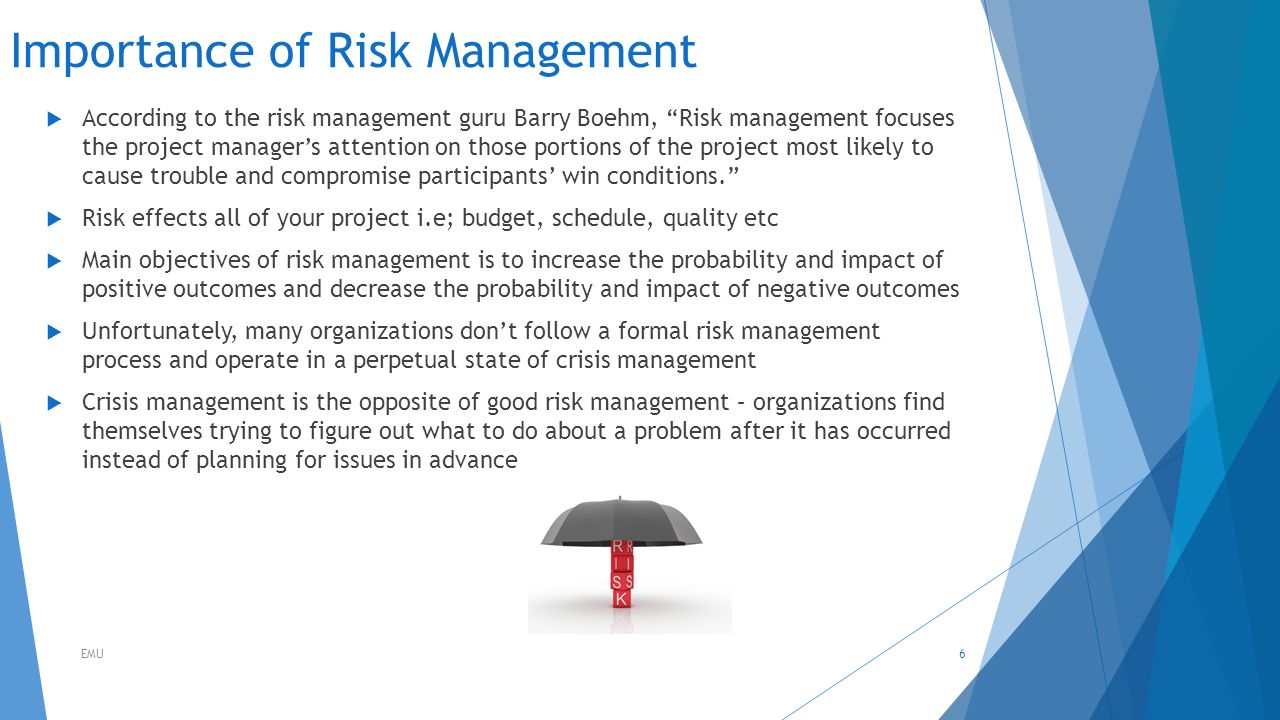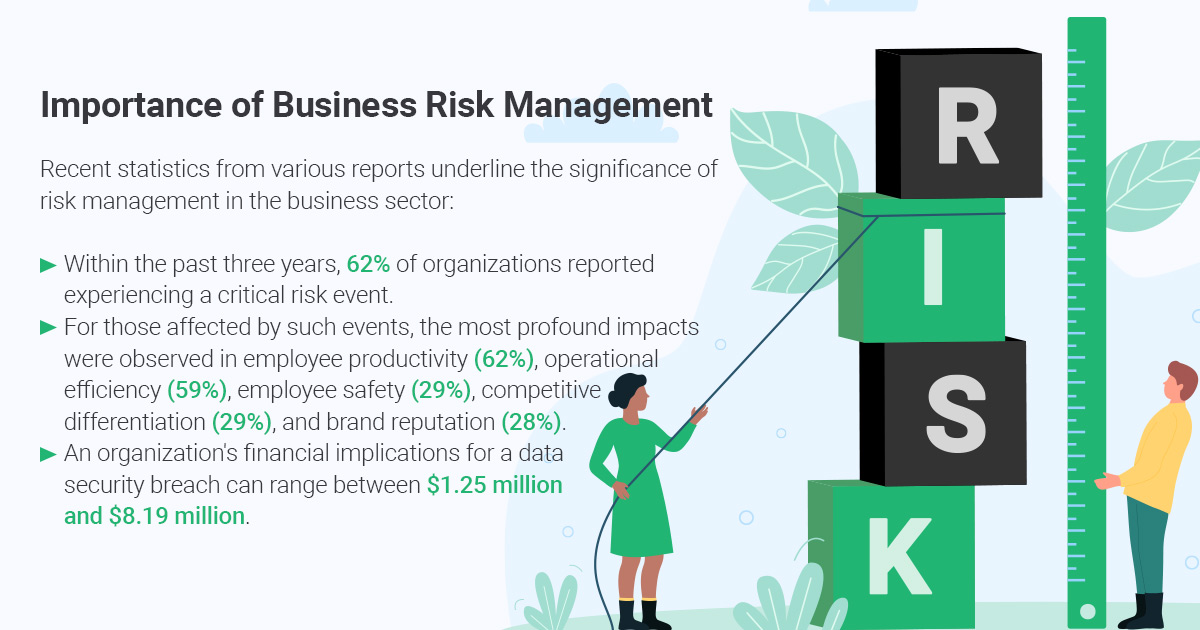The Impact of the Importance of Risk Management on Business Governance
The Impact of the Importance of Risk Management on Business Governance
Blog Article
The Crucial Relevance of Risk Management in Achieving Business Goals
This is where Risk Management steps in, providing a structured strategy to identifying, evaluating, and mitigating potential obstructions to advance. As we explore the essential duty of Risk Management in achieving business objectives, one can't ask yourself yet aid: how does this translate into real-world success?
Comprehending the Idea of Risk Management in Company

The Essential Duty of Risk Management in Strategic Preparation
Incorporating Risk Management right into calculated planning serves as a safeguard for organizations, securing their lasting strategies with a solid structure of preparedness and strength. It runs as the company's radar, detecting prospective dangers and vulnerabilities that might disrupt the path towards attaining their specified purposes. Risk Management provides a structure for anticipating uncertainties and creating appropriate feedbacks, guaranteeing the organization's survival and prosperity even when faced with misfortune. By including Risk Management right into calculated planning, organizations can transform these uncertainties into opportunities for growth and development. This calculated interweaving of Risk Management fosters adaptability, making organizations much more robust and enabling them to navigate the ever-changing company landscape with confidence. Subsequently, Risk Management ends up being an essential tool in strategic preparation, crucial in safeguarding lasting success.

Methods for Identifying, Assessing, and Prioritizing Risks
Browsing the complex landscape of risks calls for the application of particular techniques for their prioritization, identification, and assessment. The process begins with Risk identification, using devices such as SWOT evaluation, which assists in identifying potential hazards and chances. Next off, Risk analysis is carried out to establish the potential effect and likelihood of each Risk. Tools such as Risk matrices and impact-probability charts are made use of for this. Lastly, risks are focused on based on their prospective impact and likelihood, allowing companies to focus their sources on high-priority threats. This systematic technique ensures a comprehensive understanding of the Risk landscape, making it possible for companies to make informed decisions and efficiently manage dangers to accomplish their goals - importance of risk management.
Protecting Business Workflow Via Reliable Risk Management
In business landscape fraught with uncertainties, efficient Risk Management plays a crucial function in safeguarding explanation organizational procedures. It offers as a protective guard, alleviating the unfavorable effects of prospective threats and ensuring the smooth functioning of all processes. By recognizing and analyzing potential risks, Risk Management allows organizations to establish robust contingency plans. This precautionary strategy help in maintaining operational security, also when challenged with unforeseen situations. Essentially, Risk Management is the lifeline that maintains the organizational operations afloat among unstable waters. It makes certain not only the survival however the sustainable development of an organization, making it an important tool in attaining service purposes. Organizations must invest in comprehensive Risk Management approaches to guard their procedures.

Converting Possible Hazards to Opportunities: The Power of Risk Management
An aggressive technique to run the risk of Management includes recognizing, evaluating, and prioritizing risks to create methods that transform them right into potential benefits. Thus, by leveraging the power of Risk Management, companies can not just secure their procedures however also spur development and achieve their goals in an unpredictable company atmosphere.
Instance Researches: Success Stories of Risk Management Driving Business Objectives
Effective implementation of Risk Management methods has yielded remarkable outcomes in numerous businesses, highlighting the qualities of this approach. Multinational companies like Microsoft and Google, for instance, have actually leveraged Risk Management to lessen risks and exploit opportunities, driving their business goals forward. These instances show just how effective Risk Management can not only steer organizations clear of potential mistakes but likewise guide them in the direction pop over to these guys of their go right here calculated goals.
Final thought
In final thought, Risk Management is basically essential in accomplishing business objectives. It supplies a methodical approach to determining, assessing, and resolving possible risks and chances. Even more than just mitigating risks, it also promotes technology, strength, and lasting growth. By including Risk Management into strategic planning, companies can better browse uncertainties, protect operations, and capitalise on opportunities, consequently lining up with long-lasting purposes.
At its core, Risk Management is the procedure of determining, examining, and resolving prospective threats that could negatively influence a company's objectives or procedures. Next, Risk assessment is performed to identify the potential impact and possibility of each Risk. Dangers are focused on based on their possible impact and likelihood, permitting companies to concentrate their resources on high-priority threats. By identifying and examining prospective threats, Risk Management allows organizations to develop durable backup plans. A proactive strategy to run the risk of Management entails determining, examining, and focusing on threats to create strategies that turn them right into possible benefits.
Report this page